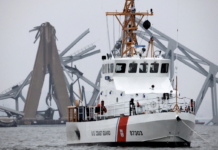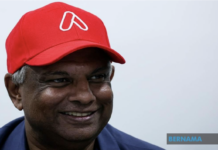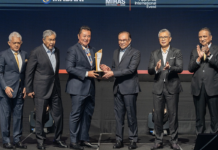KUALA LUMPUR, July 4 – The Auditor-General’s Report (LKAN) 2/2024, tabled at the Dewan Rakyat today, highlighted nine audits involving 11 ministries, with the total cost of the audited projects amounting to RM41.97 billion.
Auditor-General Datuk Wan Suraya Wan Mohd Radzi said the audit covered projects of federal government ministries, and departments as well as federal statutory bodies. The scope of the audit included projects implemented during the Ninth Malaysia Plan (9MP) to the 12MP.
She noted several weaknesses in the implementation of government projects, arising from various factors such as lack of monitoring or supervision by relevant parties, lack of coordination between the relevant agencies, incomplete databases, and weaknesses in policies and work procedures.
“These weaknesses result in programmes, activities, or projects not being completed within the set period, substandard work quality, increased costs, and the government not receiving value for the money spent,” she said in a statement.
Wan Suraya highlighted that significant issues raised in LKAN 2/2024 included the management of the River of Life (RoL) projects, the management of broadband and telecommunications network infrastructure strengthening programme, as well as projects under the East Coast Economic Region (ECER).
In the attached reports, the National Audit Department believes that the River of Life (RoL) projects will not be successfully completed this year. As of July 2023, 12 projects were still in the pre-implementation stage, eight were being implemented, and the contractor has not been appointed for two projects after the previous contracts were terminated.
Additionally, the objectives of the RoL have not been fully achieved, particularly the goal of improving the river’s water quality to Class IIB, suitable for recreational use with body contact. There have been delays in the completion of three projects and the termination of one sewerage project, resulting in an estimated cost increase of RM234.72 million. Furthermore, river beautification work was not carried out along 2.2 kilometres of Sungai Gombak.
Regarding the management of the broadband and telecommunications network infrastructure strengthening programme, the report stated that the goal of expanding high-speed Internet (fibre) coverage and connectivity in rural areas through government financial allocation has not yet been fully achieved.
“A total of 28 out of 87 broadband alignments (Broadband for General Population – BBGP project area) in Sabah and the Peninsula, worth RM53.60 million, have not been subscribed to or used since their completion in 2013 and 2017.
“Part of the infrastructure is idle, cable line connections are disconnected, and equipment is damaged. A total of 337 out of 597 schools still use broadband or satellite technology with limited speed, even though fibre technology has been provided under the Point of Presence (PoP) Phase 1,” according to the report.
Regarding the management of projects under the ECER, the report stated that 37 out of 43 industrial plots were not filled with investors for the Tok Bali Integrated Fisheries Park Project (TBIFP), the Malaysia-China Kuantan Industrial Park (MCKIP 3), and the Kertih Biopolymer Park (KBP) Phases 1 to 3.
“Additionally, infrastructure such as the Animal Production Unit (APU), storage, and workers’ housing worth RM4.03 million at the Commercial Goat Farm Development Project site in Ulu Tersat, Terengganu has not been used since 2011,” it said.
















